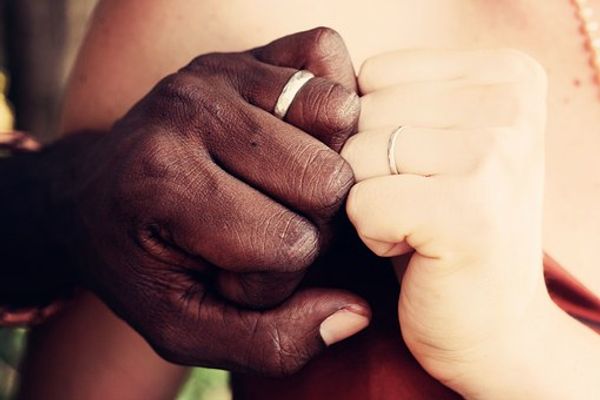3.3.7
Ethnicity
Ethnicity
Ethnicity
Ethnicity refers to the shared culture and identity of a social group and is not associated with race or skin colour.


Ethnic differences
Ethnic differences
- There can be ethnic differences between groups who might appear physically similar. For example:
- Between the English, Scots and Irish.
- Between Indian Sikhs and Pakistani Muslims.


The family
The family
- Ethnic identities are established through the family, the education system, religion and religious institutions and the global media.
- Through the family, children learn ethnicity-related norms like marriage, religious values, dress and diet.


The education system
The education system
- The education system establishes ethnic identities by passing on culture, by ethnic-based religious schooling (e.g. Muslim or Sikh schools) and by the impact of racism in mainstream schools.
- For example, branding some ethnic groups as disruptive.


Religion
Religion
- Through religion and religious institutions, such as religious festivals and places of worship.


Media
Media
- Global media influences include the Internet which enable ethnic groups to draw on the culture of their country of origin.
New Ethnicities and Hybrid Ethnic Identities
New Ethnicities and Hybrid Ethnic Identities
In today's globalised world, previously distinct ethnic groups and becoming increasingly blurred, resulting in Mixed ethnicities and new ethnic identities.


Mixed ethnic groups
Mixed ethnic groups
- Bradford (2006) showed that the Mixed ethnic group in the United Kingdom included children of white and black Caribbean parents, white and Asian parents, and white and black African parents, as well as a number of other mixed identities, but the majority with a Mixed ethnic identity had a white parent and were born in Britain.


Identity
Identity
- In the case of Mixed ethnic identity groups, it’s difficult to establish if they identify as having:
- A white ethnic identity drawn from one parent.
- An identity drawn from the ethnic group of the other parent.
- A new hybrid identity that emerges from both parental ethnic groups.


Hybrid identities
Hybrid identities
- People might also adopt a ‘hybrid identity’ that allows them to fit into the different communities and social groups in which they find themselves.


New ethnicities
New ethnicities
- Ethnic identities are becoming much harder to identify, leading Hall to suggest that globalisation (including the media and popular culture) and inter-ethnic marriages and partnerships result in a merging of cultures and the creation of ‘new ethnicities’.
1Theory & Methods
1.1Sociological Theories
1.2Sociological Methods
2Education with Methods in Context
2.1Role & Function of the Education System
2.2Educational Achievement
2.3Relationships & Processes Within Schools
3Option 1: Culture & Identity
3.1Conceptions of Culture
3.2Identity & Socialisation
3.3Social Identity
3.4Production, Consumption & Globalisation
4Option 1: Families & Households
4.1Families & Households
4.2Changing Patterns
4.3The Symmetrical Family
4.4Children & Childhood
5Option 1: Health
5.1Social Constructions
5.2Social Distribution of Healthcare
5.3Provision & Access to Healthcare
5.4Mental Health
6Option 1: Work, Poverty & Welfare
6.1Poverty & Wealth
7Option 2: Beliefs in Society
7.1Ideology, Science & Religion
7.2Religious Movements
7.3Society & Religion
8Option 2: Global Development
8.1Development, Underdevelopment & Global Inequality
8.2Globalisation & Global Organisations
8.3Aid, Trade, Industrialisation, Urbanisation
9Option 2: The Media
9.1Contemporary Media
9.2Media Representations
10Crime & Deviance
10.1Crime & Society
10.2Social Distribution of Crime
Jump to other topics
1Theory & Methods
1.1Sociological Theories
1.2Sociological Methods
2Education with Methods in Context
2.1Role & Function of the Education System
2.2Educational Achievement
2.3Relationships & Processes Within Schools
3Option 1: Culture & Identity
3.1Conceptions of Culture
3.2Identity & Socialisation
3.3Social Identity
3.4Production, Consumption & Globalisation
4Option 1: Families & Households
4.1Families & Households
4.2Changing Patterns
4.3The Symmetrical Family
4.4Children & Childhood
5Option 1: Health
5.1Social Constructions
5.2Social Distribution of Healthcare
5.3Provision & Access to Healthcare
5.4Mental Health
6Option 1: Work, Poverty & Welfare
6.1Poverty & Wealth
7Option 2: Beliefs in Society
7.1Ideology, Science & Religion
7.2Religious Movements
7.3Society & Religion
8Option 2: Global Development
8.1Development, Underdevelopment & Global Inequality
8.2Globalisation & Global Organisations
8.3Aid, Trade, Industrialisation, Urbanisation
9Option 2: The Media
9.1Contemporary Media
9.2Media Representations
10Crime & Deviance
10.1Crime & Society
10.2Social Distribution of Crime
Unlock your full potential with Seneca Premium
Unlimited access to 10,000+ open-ended exam questions
Mini-mock exams based on your study history
Unlock 800+ premium courses & e-books

